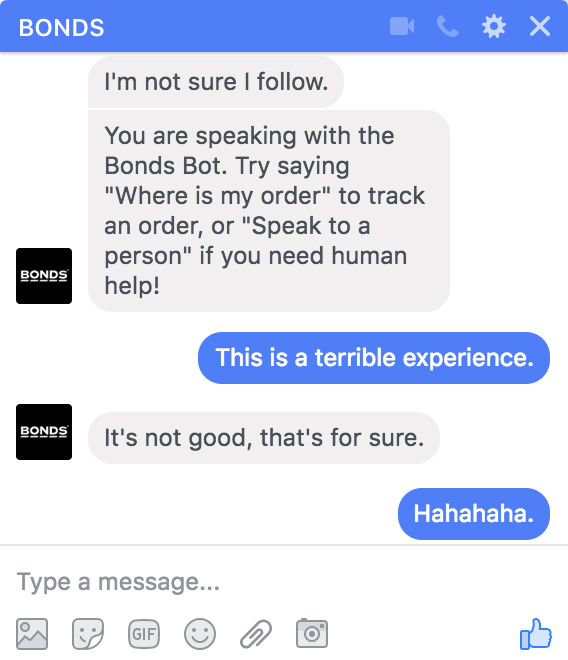30 June 2018 Brands Should Stop Asking for Feedback and Start Listening To It

Last year I missed a connection at Heathrow Airport. I sourced the needed documentation, filled in the forms and submitted my $201 travel insurance claim. Four weeks later I got a cheque in the mail for $1. When I enquired why it was so little, they told me there was a $200 excess. I suggested some feedback:
Me: You should consider putting a reminder at the start of the process. It would have saved us both a bit of time.
Them: It’s in the fine print of the Product Discloser Statement.
Me: Yeah… I get it… but… never mind.
Good feedback ignored. Which has become the standard, particularly on social media where the general sentiment is “Thanks, we will totally pass that onto someone who matters and definitely not ignore it.”
Instead of stopping a moment to listen, businesses are too busy screaming for feedback. Last month Amex sent me three reminders to fill in a survey. Expedia asked for a review when I checked in, when I checked out and then a follow up.
You pretty much can’t interact with a business now without being prompted for a survey.
Customer satisfaction surveys. MAKE. THEM. STOP.
— Tom Goodwin (@tomfgoodwin) January 27, 2018
Marketers are too obsessed with their Net Promoter Score. They’re not seeking feedback for improvement, they’re trying to hit a KPI.
But unsolicited feedback is where the good stuff happens.
One of my most successful strategies used old Facebook comments from customers enquiring about a discontinued product. The client had previously dismissed them with a generic apology. Instead we used them to build a business case to bring the product back for a limited edition run. It was so successful it became a regular, and went on to do more than $4m in sales.
Too many business ignore genuine feedback because they’re soliciting feedback that’s shit. Imagine a business culture where the brand listened, recognised, implemented and then thanked. Even rewarded.
Instead, we just get fucking surveys. And useless chatbots.


Mauro
Posted at July 2, 2018 1:49pm, 02 JulyBrilliant! Just went through exactly this with Qantas!
Kai Ansaari
Posted at July 2, 2018 9:14pm, 02 JulyEmployee’s aren’t incentivised to do anything with the information. Half the support centres are located in India/Philippines as separate functions, detached from the part of the business trying to improve product & service quality. Large organisations are mostly stupid. One solution is to incentivise good ideas and feedback through a bounty model. Forget bug bounties, feedback/insights bounties!
Damien Hashemi
Posted at March 18, 2019 10:30pm, 18 MarchThe evil here is NPS. Large consultancies like Boston Consulting have gotten their claws into the large corporates.
They have “found” a way to quantify feelings.. Meaning corps can now analyze the sentiment of customers to identify where they need to improve.
In practice, this is massively flawed. It’s open to a massive degree of responder bias (there’s a certain type of person who responds to these things and there’s are not a cross-section of society.
Also what one person’s subjective rating of 9 out of 10 means can’t be compared with someone else’s 9 out 10.
Some people think clean sheets in a hotel is 9 whereas others expect raw silk toilet paper for the same score.
The problem is that they’re using statistics in a way it was never intended for.
This is another example of a brand not realising that user experience and advertising are actually part of the same problem.
Sometimes a customers perception of the product can be improved by advertising, sometimes you have to make it better, but what’s best is when the two areas actually talk to each other enough to realise that we’re probably harming the brand by asking these inane questions.